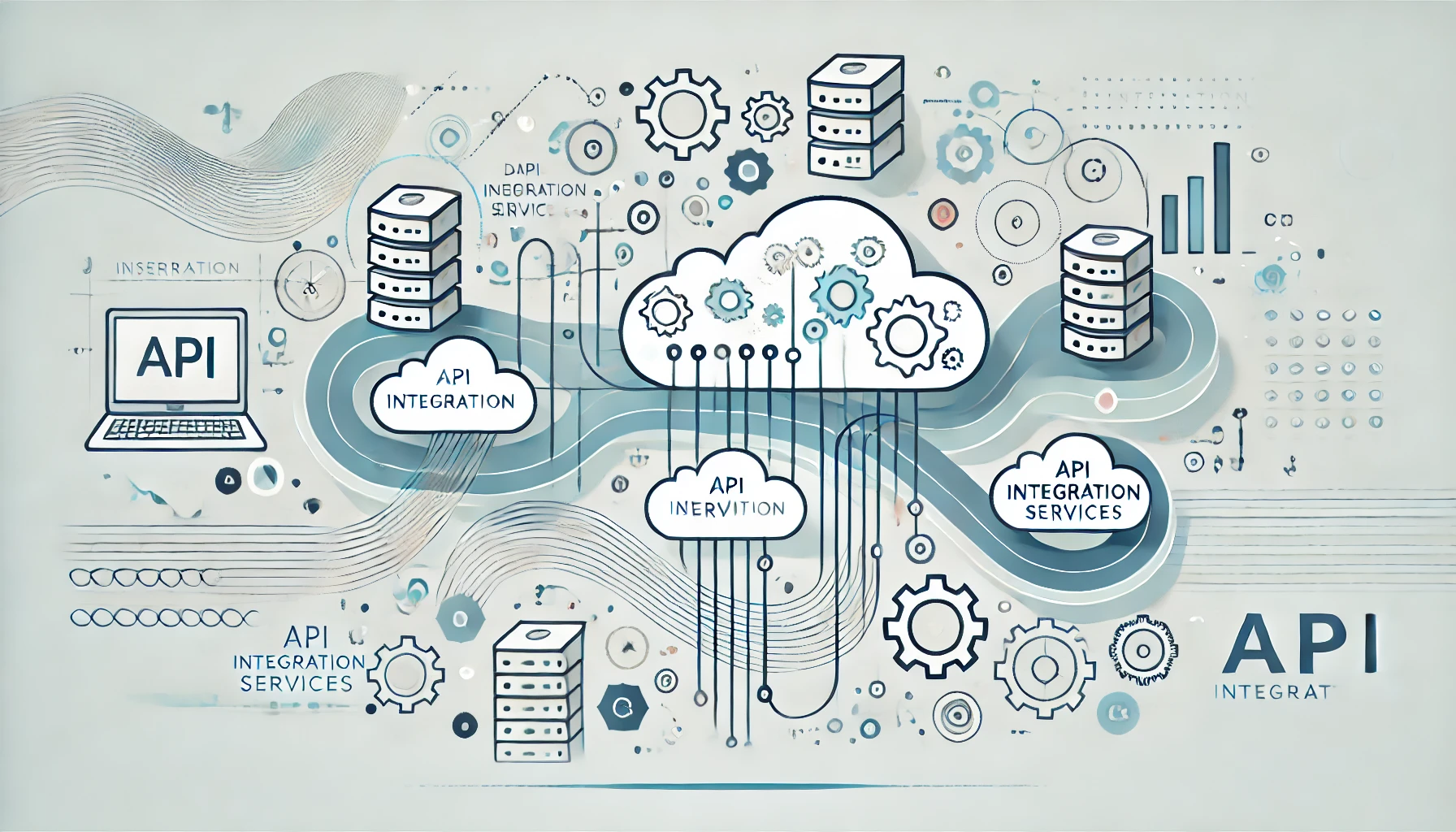With the increasing demand for seamless connectivity and data exchange in today’s digital landscape, it’s worth noting that 73% of organizations believe that API integration is crucial for their business success. The ability to integrate various systems and applications can significantly transform how your organization operates and interacts with data. By harnessing the power of API integration services, you can unlock a myriad of benefits of API integration services that enhance efficiency, collaboration, and scalability within your business. Explore how these services can propel your organization towards greater success and competitiveness in the modern business arena.
Streamlined Operations
When integrating APIs into your systems, achieving streamlined operations is crucial for maximizing efficiency and productivity. Automation optimization plays a key role in this process, allowing for the seamless flow of data and processes between different applications. By automating repetitive tasks and workflows through API integration, you can eliminate manual errors and reduce the time required to complete various operations. This not only frees up valuable resources but also enhances overall productivity within your organization.
Optimization of processes through API integration enables you to leverage the full potential of your systems, ensuring that they work together harmoniously to achieve your business goals. By streamlining operations, you can minimize delays, bottlenecks, and inefficiencies that may arise from manual intervention or disconnected systems. This level of productivity enhancement is essential in today’s fast-paced business environment, where every second counts towards gaining a competitive edge. Embracing streamlined operations through API integration services is a strategic move towards achieving operational excellence and driving business growth.
Improved Efficiency
When utilizing API integration services, you can achieve improved efficiency through time-saving automation. By automating repetitive tasks, you can streamline operations and reduce the time spent on manual processes. Additionally, streamlined data exchange facilitated by APIs ensures that information flows seamlessly between systems, further enhancing efficiency.
Time-Saving Automation
Increased efficiency through time-saving automation is a crucial aspect of API integration services. By automating routine tasks such as data entry, processing, and communication between different systems, API integration significantly boosts productivity. Manual processes are prone to human errors, leading to data inconsistencies and delays. With automation, the chances of errors are reduced, ensuring accuracy and reliability in data handling.
API integration services streamline workflows by automating the exchange of information between applications, databases, and systems. This automation eliminates the need for manual intervention, saving valuable time that can be redirected to more strategic tasks. By automating processes like order processing, customer data synchronization, and inventory management, businesses can operate more efficiently and respond to customer needs promptly.
Furthermore, time-saving automation allows businesses to adapt quickly to market changes and scale operations without increasing administrative overhead. This agility is vital in today’s fast-paced business environment, where responsiveness and efficiency are key to staying competitive. Embracing API integration services for time-saving automation can give your business a significant edge in optimizing operations and driving growth.
Streamlined Data Exchange
Utilizing API integration services enables businesses to achieve streamlined data exchange, resulting in improved efficiency across various operational facets. Data synchronization plays a crucial role in ensuring that information flows seamlessly between different systems, allowing for real-time updates and accurate insights. By integrating APIs, businesses can automate the transfer of data between applications, eliminating manual processes and reducing the risk of errors.
System integration is another key aspect of streamlined data exchange facilitated by API services. APIs act as connectors between disparate systems, enabling them to communicate and share data efficiently. This integration streamlines workflows, enhances collaboration, and improves decision-making processes by providing access to up-to-date information across all integrated platforms.
Real-time Data Access
To achieve real-time data access through API integration services, it is essential to establish seamless connections between your systems and external sources. By utilizing APIs effectively, you can ensure that data flows securely and efficiently between your applications and external platforms. Data security measures within API integration services help safeguard sensitive information during transit, while performance optimization techniques enhance the speed and reliability of data retrieval processes.
Real-time data access enables you to stay updated with the most current information, empowering your business to make informed decisions promptly. Whether you require real-time analytics, inventory updates, or customer information, API integration services can provide you with the necessary tools to access this data instantaneously. This immediate access to data fosters agility and responsiveness within your operations, allowing you to adapt swiftly to changing market conditions and customer needs. By leveraging API integration for real-time data access, you can enhance the efficiency and effectiveness of your business processes.
Enhanced Collaboration
For seamless collaboration within your organization, leveraging API integration services can revolutionize the way data is shared and accessed across different departments and teams. By integrating APIs, you enable increased productivity through streamlined processes and seamless communication channels.
API integration services facilitate real-time data sharing, allowing teams to access up-to-date information instantaneously. This immediate access to data eliminates delays in decision-making processes and ensures that all team members are working with the most current information available.
Furthermore, API integration enhances collaboration by breaking down silos between departments. With APIs connecting various systems and applications, different teams can easily share data and insights, leading to a more cohesive and informed working environment. This seamless communication fosters innovation and accelerates project timelines by enabling teams to work together efficiently.
Scalability
When considering the aspect of scalability in relation to API integration services, it is crucial to understand the pivotal role it plays in accommodating the growth and evolving needs of your organization. Scalability is not just about handling current demands but also about being prepared for future expansions and changes. Here are some key points to consider:
- Integration Flexibility: Scalability allows your API integration services to adapt to new requirements seamlessly. It ensures that as your organization evolves, the integrations can be easily modified or extended to incorporate new functionalities or systems.
- Scalability Solutions: Implementing scalable solutions in API integration services enables your systems to handle increased data volume, user traffic, or transactions without compromising performance. This ensures that your integrations remain efficient and effective even as your organization grows.
- Future-Proofing: Scalability not only addresses current needs but also future-proofs your integration setup. By designing scalable solutions, you can save time and resources in the long run by avoiding major overhauls when your organization expands or pivots.
Cost-efficiency
Cost-efficiency is a pivotal aspect to consider when evaluating API integration services for your organization. Through API integration, you can achieve significant cost reduction by streamlining processes and eliminating the need for manual data entry. By automating tasks like data sharing between systems, API integration services help in optimizing resources, minimizing errors, and reducing operational costs.
With the seamless flow of information facilitated by APIs, there is a decrease in the time and effort required to perform tasks, leading to resource optimization. This efficiency not only saves money but also allows your team to focus on more strategic initiatives rather than repetitive manual work.
Furthermore, API integration services enable better utilization of existing resources by connecting disparate systems and applications, avoiding the need for costly custom development or manual data handling. By leveraging APIs, you can enhance productivity, improve workflows, and drive cost-efficiency across your organization.
Business Agility
To achieve business agility through API integration services, you must focus on speeding up processes, enhancing flexibility, and streamlining operations. By leveraging APIs, you can automate tasks, reduce manual intervention, and accelerate the flow of information between systems. This level of agility enables your business to adapt quickly to market changes, optimize workflows, and stay ahead of the competition.
Speeding up Processes
Enhancing business agility through the optimization of processes is crucial in today’s fast-paced market environment. By speeding up processes, API integration services play a vital role in enabling organizations to adapt quickly to changing market demands and stay ahead of competitors.
Benefits of Speeding up Processes with API Integration:
- Faster Workflows: API integration allows for seamless data exchange between different applications, automating tasks and reducing manual intervention. This accelerates workflows, leading to quicker decision-making and improved operational efficiency.
- Increased Productivity: By streamlining processes through API integration, repetitive tasks are minimized, freeing up valuable time for employees to focus on more strategic initiatives. This boosts overall productivity within the organization.
- Real-time Insights: API integration enables real-time data synchronization across systems, providing instant access to critical information. This ensures that decisions are made based on the most up-to-date data, enhancing agility in responding to market changes.
Incorporating API integration services to speed up processes can significantly enhance business agility, empowering companies to respond swiftly to market dynamics and drive sustainable growth.
Enhancing Flexibility
For organizations seeking to bolster their business agility, a key aspect to focus on is enhancing flexibility. By integrating API services, businesses can significantly increase adaptability and enhance responsiveness to market demands and internal changes. API integration allows for seamless communication and data exchange between different systems, enabling organizations to quickly pivot and adjust their operations as needed.
Through API integration services, companies can streamline processes and create a more agile environment that is better equipped to handle dynamic business requirements. This enhanced flexibility enables businesses to respond promptly to shifting customer needs, industry trends, and competitive pressures. Additionally, API integration fosters innovation by providing a solid foundation for developing and deploying new services rapidly.
In essence, API integration services play a crucial role in fortifying a company’s business agility by enhancing flexibility, facilitating increased adaptability, and ensuring enhanced responsiveness to a constantly evolving business landscape.
Streamlining Operations
Amid the ever-evolving business landscape, streamlining operations is a pivotal element in enhancing business agility. By leveraging API integration services, you can optimize workflows and drive efficiency across your organization, ultimately increasing productivity levels.
Key Benefits of Streamlining Operations with API Integration Services:
- Automated Processes: API integration enables the automation of manual tasks, reducing human errors and saving valuable time. By streamlining operations through automation, you can achieve a higher level of accuracy and consistency in your workflows.
- Real-Time Data Sync: With API integration, you can ensure seamless data synchronization between different systems and applications. This real-time data exchange enhances decision-making processes and enables faster responses to changing market conditions.
- Improved Scalability: API integration services provide a scalable solution for accommodating growing business needs. By streamlining operations through APIs, you can easily scale your systems and processes to meet increasing demands without compromising efficiency.
Frequently Asked Questions
How Can API Integration Services Improve Data Security?
To improve data security with API integration services, you can implement enhanced encryption methods and improved access controls. This secures data transmission and restricts unauthorized access, safeguarding sensitive information from potential breaches or cyber threats effectively.
What Measures Are in Place to Ensure API Compatibility?
Ensuring API compatibility involves meticulous API versioning and rigorous compatibility testing. Middleware solutions and API gateways play pivotal roles in facilitating seamless integration. Failures in these steps could lead to integration breakdowns, hindering system efficiency.
Can API Integration Services Be Customized to Specific Industries?
Yes, API integration services can be tailored to suit various industries. Customization options allow for industry-specific solutions, ensuring seamless integration with existing systems. This flexibility enables businesses to optimize processes and enhance overall efficiency.
How Do API Integration Services Handle Legacy Systems?
When dealing with legacy system migration, API integration services employ various data migration techniques. They facilitate seamless transition by mapping data structures, transforming formats, and ensuring compatibility between old and new systems, streamlining the process efficiently.
What Support Is Available for Troubleshooting API Integration Issues?
Just like a seasoned detective unraveling a complex case, you can rely on various troubleshooting techniques and support options to tackle API integration challenges. These resources aid in error resolution, ensuring seamless system operation.


